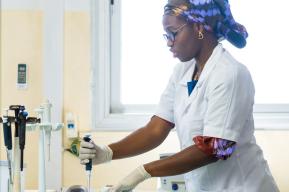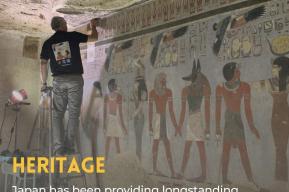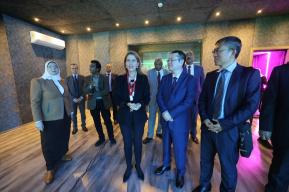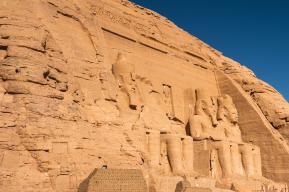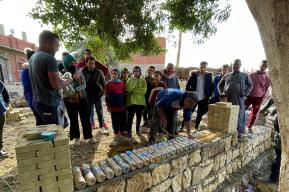While adult literacy rates have improved in recent years, the challenge persists. The Egypt’s Central Agency for Public Mobilization and Statistics’ most recent population census (2017) found that of the 18.4 million Egyptians who are illiterate, 10.6 million are women.
Literacy can provide girls and women the confidence and agency to better participate and engage in community life, and therefore make their voice heard. To empower women in Egypt, even the hardest-to-reach, to lead better lives, UNESCO implemented a literacy project through the UNESCO Malala Fund for Girls’ Right to Education.
“When I saw how people transformed and how education is good for them, I wanted to be like them and learn like them,” said Basma. She enrolled in the literacy classes provided in the Giza Governorate under the project. These classes introduced innovative ICT-based learning materials and tools to promote functional literacy.
Beyond reading and writing, literacy classes promoted young women’s agency and numeracy skills. Topics like early marriage, female genital mutilation and civic participation were also discussed in class, and support was provided to young women to start their own businesses. “Now I care about my education,” shared Basma. “I want to study more and reach high levels and fight for what I want, even when it is difficult.”
Participating in these classes has improved Basma’s self-esteem and communication skills. “Before, I could not go out on my own because I could not even read the street signs. Now I am not afraid anymore to go out on my own”, she said. Basma now loves socializing. She created a WhatsApp group to communicate with the other young women in her class. She even corrects them when they miss-spell words. Basma’s dream is to continue her education and study science at the university level.
From 2016-2018, the UNESCO Office in Cairo implemented a project aiming to create multiple pathways for young women in remote communities in Egypt to achieve lifelong learning. It reached 977 women aged 15 to 35, and enabled 792 women to take the Adult Education Authority (AEA) examination. These exam-takers achieved an 85 per cent success rate -- far above the national average. UNESCO is hoping to roll out this good practice at national level.
The UNESCO Malala Fund for Girls’ Right to Education aims to expand access to a quality and relevant education for girls and women and ensure safe learning environments, especially in countries affected by conflict and disaster. To date, 10 countries have benefitted from support from the Fund, empowering thousands of girls and women in and through education.
From 15 October to 18 December 2018, UNESCO is running a digital campaign on the #RightToEducation to mark the 70th year of the Universal Declaration of Human Rights. Join here.



